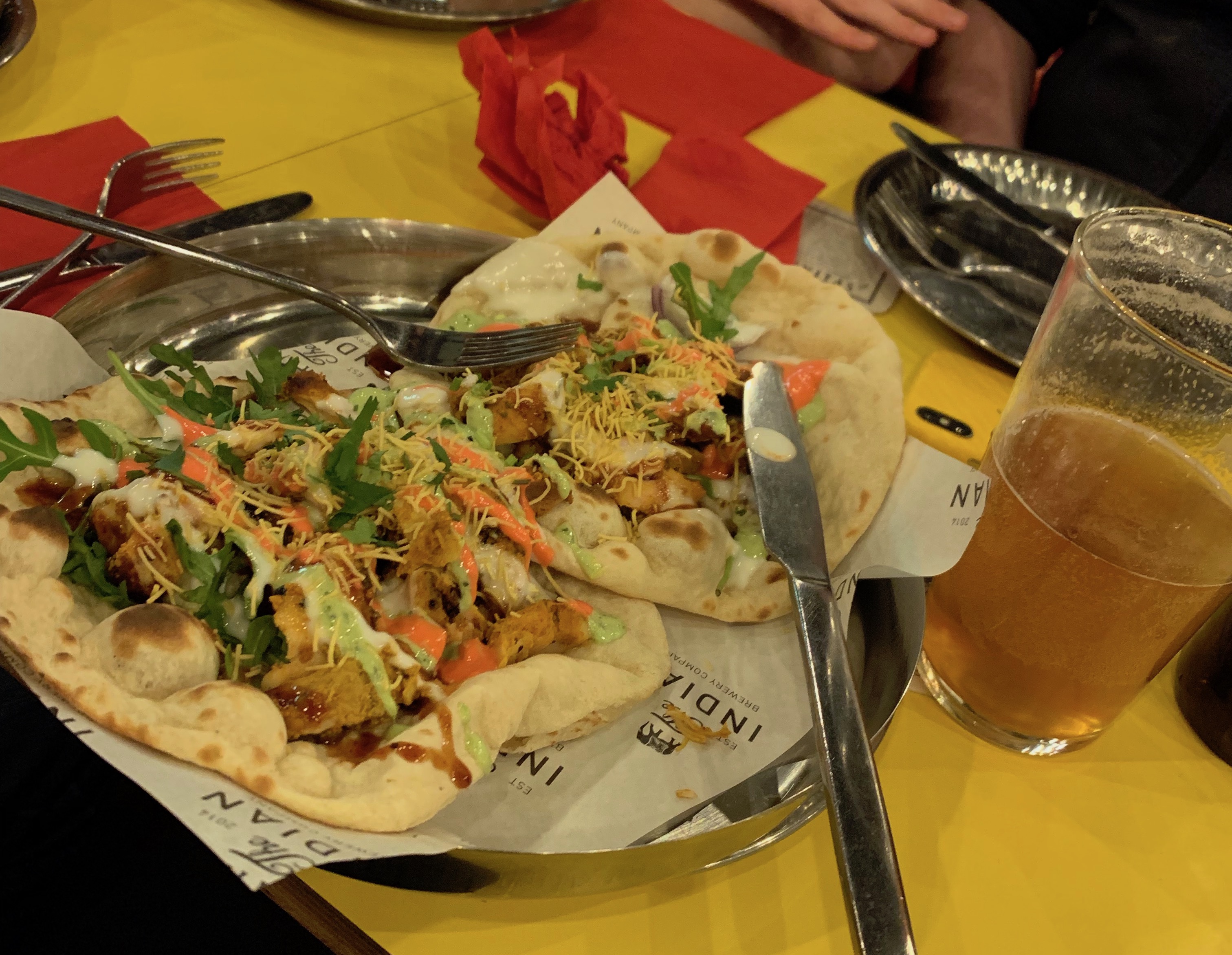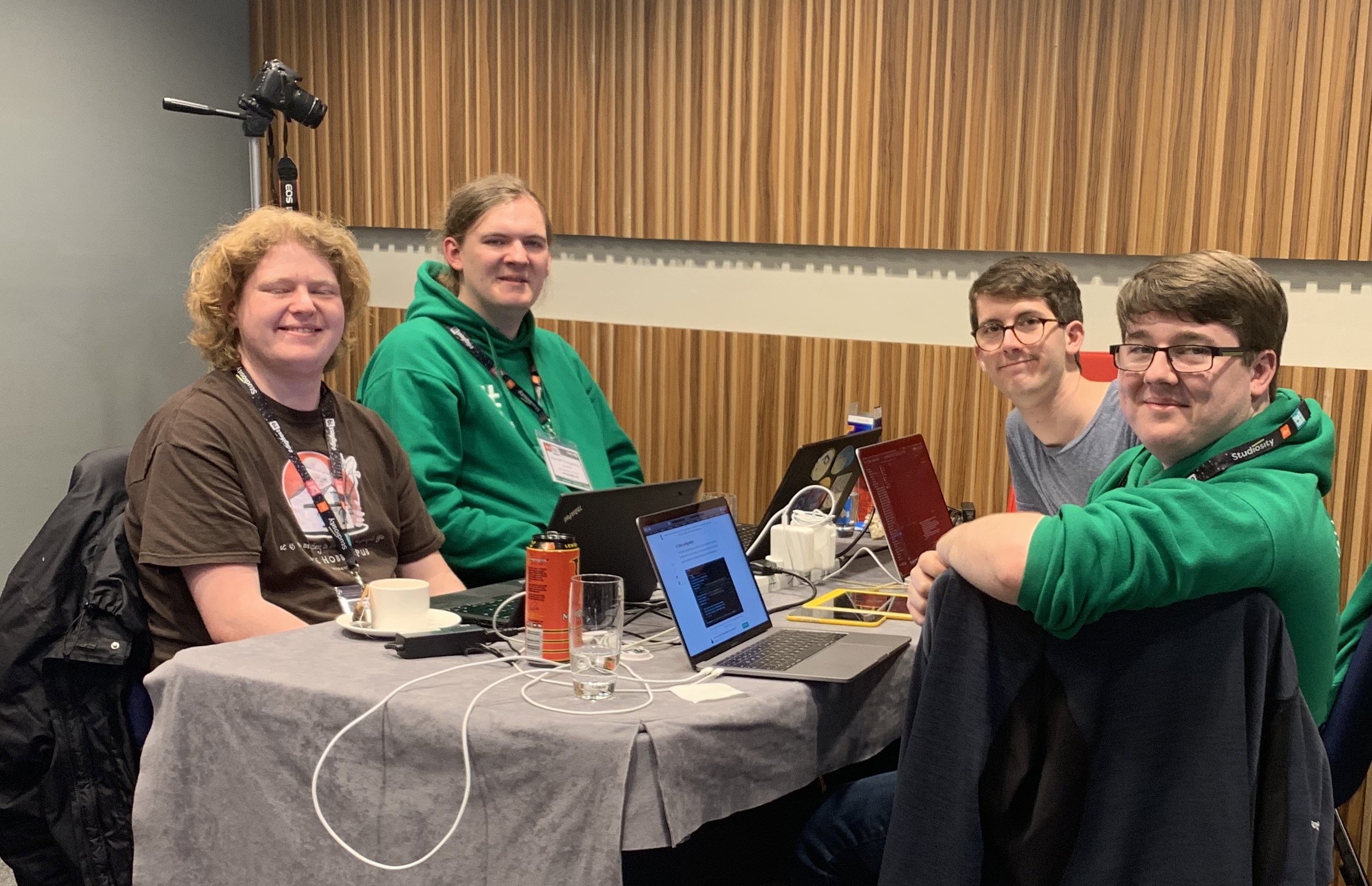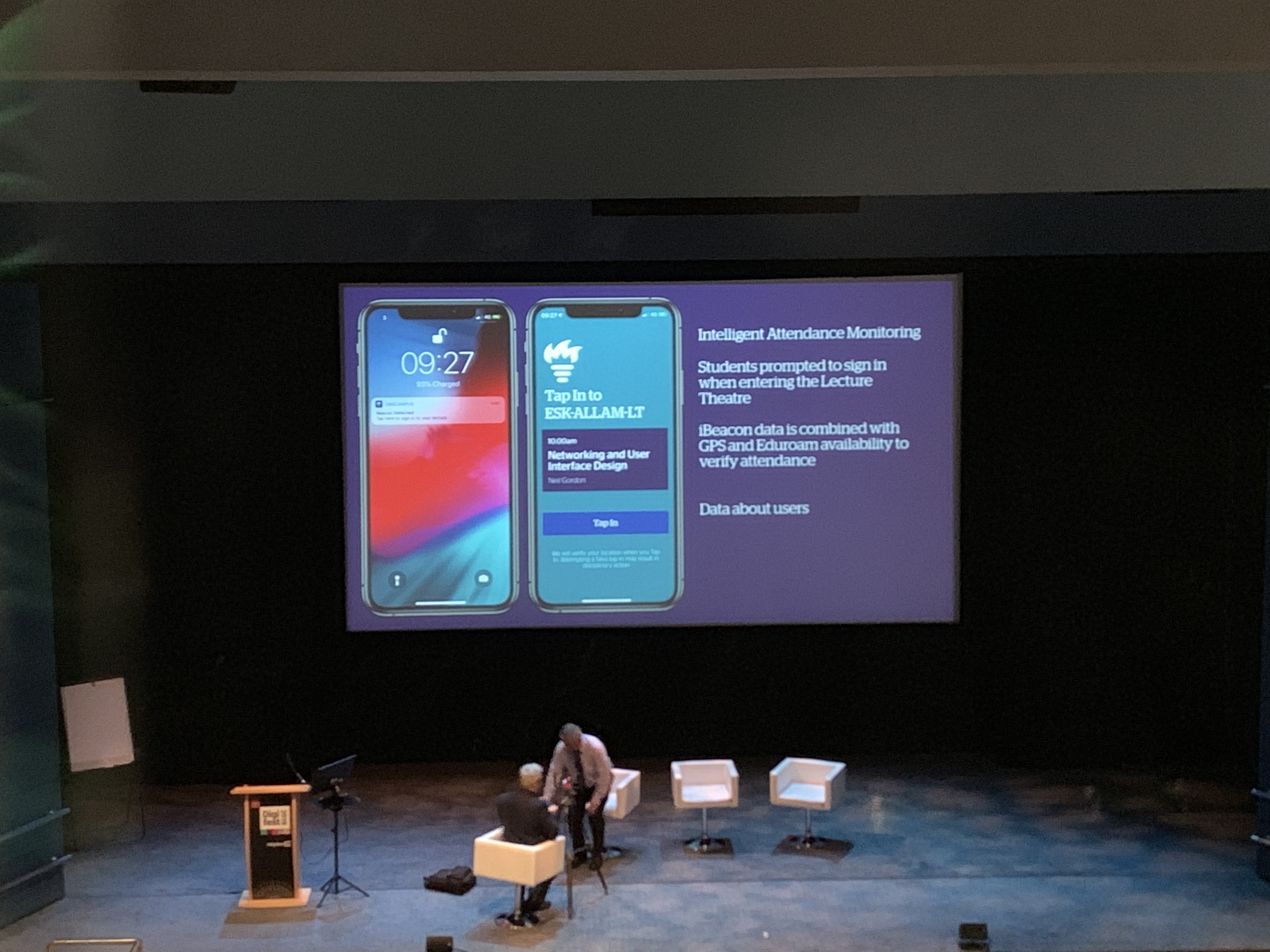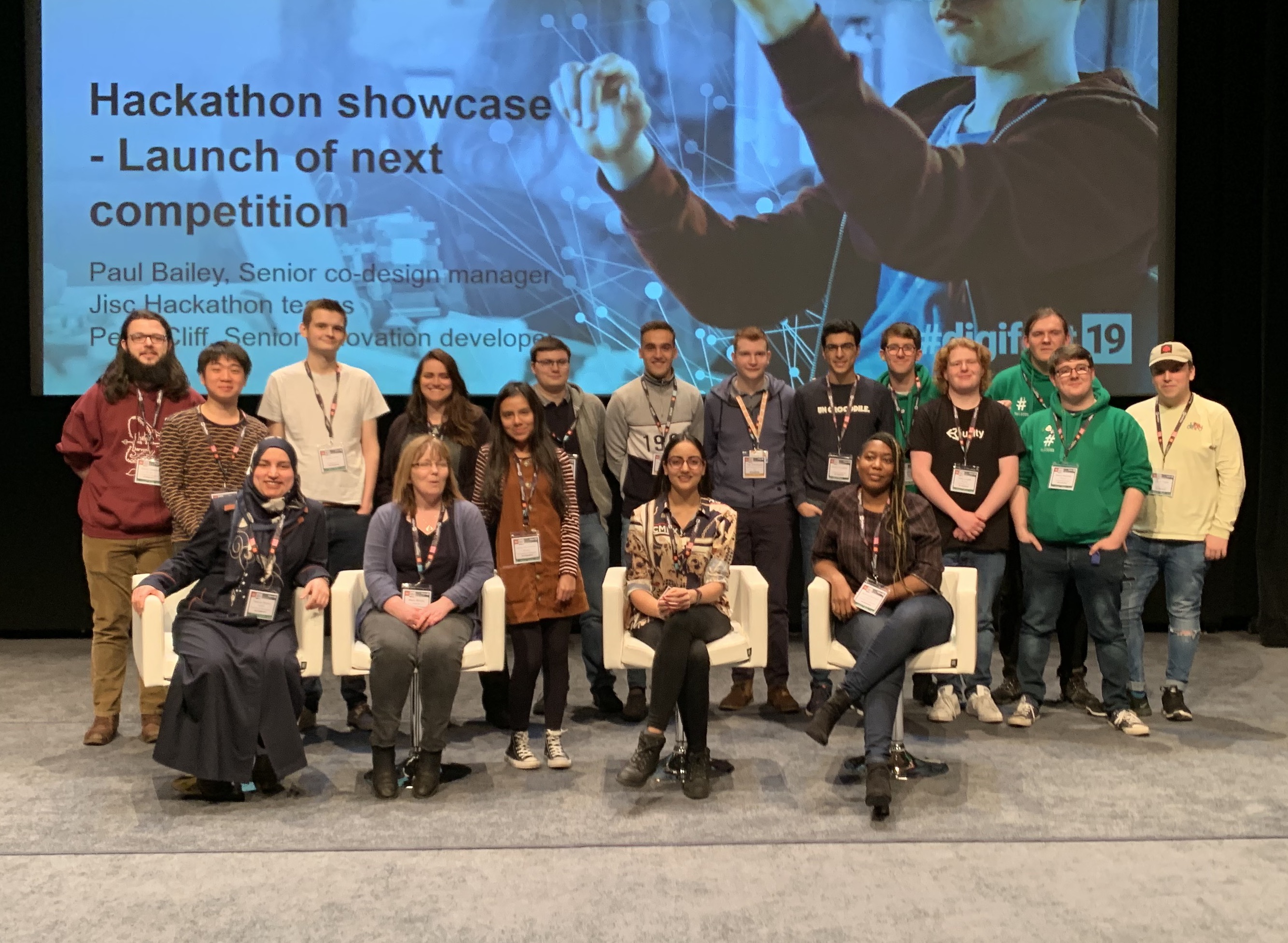Winning JISC's DigiFest Hackathon
Last week a team of members from #hullCSS and I went to the JISC Digifest Hackathon at the ICC in Birmingham. If you don’t know about the organisation, chances are you’ve used their services as they provide the Janet Network and eduroam for the UK, as well are a non-profit providing solutions for the education sector.
Over two days we built an initial version of an ‘intelligent campus’ application which allows students to engage with student services, find out their schedules and be notified of changes by their institution more easily.
Our Motivation
 We were driven by the array of poor apps published by UK institutions, offering limited functionality with mostly web views. Hull’s current app also consists of a timetable which is only available when the days of the week you want are manually selected and correct week number in the term is ticked, providing an extremely poor UX.
We were driven by the array of poor apps published by UK institutions, offering limited functionality with mostly web views. Hull’s current app also consists of a timetable which is only available when the days of the week you want are manually selected and correct week number in the term is ticked, providing an extremely poor UX.

Through the massive advances made in smartphone technology over the last few years, we realised we could harness native applications to provide access to PassKit and allow smart card use as well as simplifying the onboarding process for students to set up Eduroam, Mail Services and more automatically which would help reduce the number of calls to our IT Service Desk. We knew that iBeacons would also solve the problem of tapping-in to lectures, as they allow automatic detection of when a student enters a lecture theatre at the correct time so they can be signed in.
We realised that there’s a vast amount of fragmentation across Universities and that there are many different services requiring plastic cards, and with the University’s goal to eliminate single-use plastics on-site through plastic pledges, we thought we could do this and eliminate plastic cards from over 16,000 students on campus.
Day 1: Travel

We spent Monday afternoon driving down to the ICC in Birmingham, checking in to our hotel, discussing our plans for design and making some wireframe mockups in Sketch to understand conceptually how our app was going to function before heading into the hackathon on the following day.
After our brainstorm, we headed down to The Indian Brewery for a get-together with the other teams participating in the event (including another team from Hull!) We got to know the other teams, enjoyed some amazing food and then headed home for the night to be ready for an early start on Tuesday!
Day 2: Code

Starting bright and early and getting to the International Convention Centre (ICC) for 8.30 am, we split up our team, decided what we were working on for the day and got straight to work.
I worked on building wireframes, mapping out user journeys and designing our interface then moving to work on implementation in XCode later in the day when I’d designed all the interfaces. Harry was our lead iOS Dev and worked on implementing my mockups and bringing them to life as they came in. Dan and Alex were working on building out our backend services, building login, timetable data, bus tracking and weather to connect up to the app.

The pressure ramped up as we got towards 5 pm, where we had to stop work for the day. We ended our first day of code with a functional app but no authentication and were then invited down the Digifest’s delegate meet-up, where we spent a couple of hours meeting interesting people from different organisations, seeing some cool robots and talking to JISC’s team as well as developers from Canvas and Instructure about interesting ways we could use their APIs.

In the evening JISC took us out for a wood-fired pizza at OTTO, the meal was incredible and the venue was lovely, we pretty much filled the venue with hackathon participants. After tea, we headed back for a late night of doing some work with Dan and Alex building out a background-image grabbing service and me doing some mockups for the last day of work.
Day 3: Code & Present

Waking up bright and early on the final day of the hackathon, with a solid 5 hours of sleep we headed down for breakfast and then back to the ICC, where we knew we had very little time to complete our solution and make up a presentation. I got on implementing my mockups from the night before in Swift, while Harry worked on the Campus page and the presentation. Dan and Alex got the backend services into AWS and Harry configured log-in to work through the app against the server.
As the clock ticked down, as we got the final version of the presentation, I headed over to the projection artists to make sure our presentation ran properly and there were no issues with HDCP or Keynote. It was then time for our presentation (available to watch fully here on YouTube). There were some really interesting projects given by the other participants.
End Product
We could really see potential in the product that we created and were incredibly pleased with the end result of the hackathon. We’re continuing to build on our work as a side project and you can read more about it on the projects page here or contact me to learn more.
Very kindly, JISC covered our costs for the event - thank you to them for inviting us to the event and giving us the opportunity. It was really fun to bump into the other team from Hull too, and meet Ollie and Luke to see their cool lecture engagement project. Thanks to all the other teams in the competition for keeping us on our toes, and the really cool end products you created. Harry has also done a write up of this event, that you can read here.
Video
University of Hull - Press Office